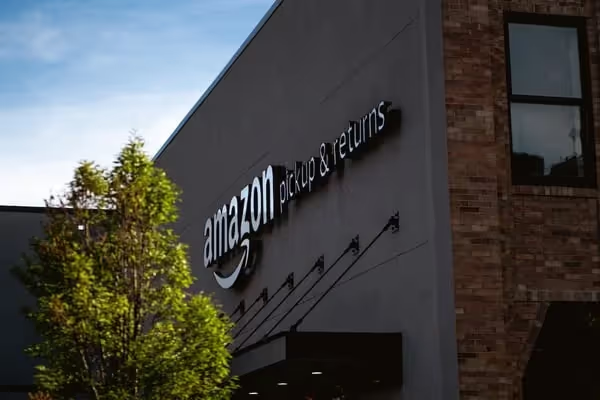Key takeaways
- Nexus defines where you owe sales tax: Physical presence (offices, warehouses, or employees) and economic activity (sales or transaction thresholds) are the main triggers.
- Post-Wayfair rules add complexity: Nearly all states now enforce economic nexus, requiring many remote sellers to register, collect, and remit tax in multiple jurisdictions.
- Automation helps avoid penalties: With thousands of changing tax rules, using compliance tools or expert advisory services is key to staying compliant.
Hundreds of blog posts focus on sales tax nexus and economic nexus. Unfortunately, most of them are either overly complicated or way too vague.
The main goal of this post is to provide concise answers to common sales tax and economic nexus questions. This post can serve as a fantastic resource for your CPA firm as you introduce these concepts to your clients.
Below, we'll explain how nexus works, when it applies, and what implications reaching a nexus threshold can have on a business.
Here’s how we’re going to break it down:
- Key definitions to help you understand what the heck we're talking about
- Legislative details to help you grasp when, why, and how nexus is triggered
- Real-world examples to help you understand practical nexus application
This post will cover general sales tax nexus, physical presence nexus, economic nexus, trailing nexus, and marketplace nexus. We'll also provide insight on nexus triggers that are now (mostly) obsolete, including affiliate nexus, click-through nexus, and 'cookie' nexus. As we make our way through each section, we'll also provide insight on how to manage, simplify, and streamline SUT compliance. Last but not least, we'll answer some common questions we get from our clients.
Let’s start with the most basic concept; sales tax nexus.
Sales Tax Nexus Defined
Sales tax nexus - often referred to as 'nexus' - is the minimum connection a business must have with a state in order to be required to collect and remit sales tax in that state.
Many things can establish nexus between a business and a state. However, physical presence and economic thresholds are the most common ways to trigger nexus - so we'll start there.
Physical Presence Nexus Defined
Physical presence nexus is triggered when a business has a direct connection to a state that allows said state to impose sales tax obligations on the business.
In many cases, it's triggered when a business operates out of a brick-and-mortar location in a particular state. This situation is very straightforward, but there are also more nuanced physical presence triggers, which we'll explain below.
Physical Presence Nexus Legislation
Here's a list of all the scenarios that can trigger physical presence nexus.
Property-Based Triggers
1. Having a physical location or brick and mortar business. For example, owning a boutique shop in Manhattan.
2. Owning or leasing a business office in another state. For example, having a store in one state and an office headquarters in another state.
3. Owning or leasing a business warehouse in another state. For example, leasing a centrally located warehouse to store inventory waiting to be distributed to brick and mortar locations.
Non-Property-Based Physical Presence Nexus Triggers:
1. Sending employees or agents to another state. For example, sending traveling sales reps to other states to recruit new business.
2. Storing property in a facility in another state. For example, Fulfillment by Amazon sellers who store inventory in Amazon warehouses (involves property, but not property owned or leased by the business owner).
Real-World Physical Presence Nexus Examples
Now that you've got the definitions down - let's take a look at physical presence nexus in action.
The Cafe Owner

If you open a cafe in Gilbert, Arizona, a direct physical connection to the state, created by purchasing or leasing a brick and mortar building, triggers physical presence nexus. That means you must collect and remit sales tax to the state of Arizona.
The example above illustrates what's referred to as 'home state nexus' - a term used to describe state tax obligations that occur based on where your primary or flagship brick and mortar business resides.
Now let's say your flagship location is in Arizona, but you have additional locations in Kansas, California, and Texas. Each leased or owned building triggers physical presence nexus, resulting in sales tax obligations in all four states.
The Amazon Seller

If you're a fulfillment by Amazon (FBA) seller, Amazon will choose where to store your inventory based on your product sales history. Laws can vary, but you're likely to have nexus in states where your inventory is stored. To date, 47 states have developed marketplace facilitator legislation, which includes details on whether or not they consider inventory storage to be a nexus-creating activity.
Product can move frequently, so it's crucial to closely monitor where your inventory is stored because it's your responsibility to manage nexus compliance. To find out where your inventory resides, log into your Amazon seller account and navigate to Reports > Fulfillment > select ‘more’ under the Inventory header > Inventory Event Detail. Download and open the report to see a list of all the fulfillment centers where your inventory is stored. Unfortunately, Amazon uses city-based fulfillment center codes, so you have to do a little legwork to figure out which states you have physical presence nexus in. You can use this fulfillment center code list to translate your report.
Once you figure out where you have nexus, you need to log into Seller Central to report these states to Amazon. You'll need to have your state seller registration ID available to set this up. Once done, Amazon will collect state sales tax on your behalf, but it will still be your responsibility to file and remit tax monies in all states where you have physical or economic nexus.
The Remote Employee

If your company has a home base in California and you have employees in Arizona and Montana, do those employees trigger sales tax nexus? We have to turn to state legislation for guidance on this one because the answer varies from state to state.
In Arizona, the answer is yes - if your employee spends two or more days per year in the state. In Montana, however, having a remote employee does not trigger physical presence nexus. That's because Montana is one of five US states that doesn't have sales tax.
A lot more businesses have been impacted by remote employee-triggered physical presence nexus since the beginning of the pandemic - when hundreds of thousands of employees started working from home. If your company had people move from a physical office to a home office and you haven't assessed how that pivot affects your tax obligations, consider this your nudge to take a closer look.
The Traveling Salesmen

Let's say you have a territory sales manager who works out of his home in North Carolina. Now, let's say his role is heavily travel-based, and he regularly visits clients across his territory - which includes North Carolina, South Carolina, Tennesee, Kentucky, and Virginia.
Nexus varies from state to state, but in general, a salesman's regular presence in a state, particularly if he's working to onboard new clients (thus making sales into the state), is likely to establish physical presence nexus. Other traveling roles, like installers and implementation specialists, can also create nexus in states they visit, depending on how state legislation defines an 'in-state employee.'
Economic Nexus Defined
Economic nexus is an inter-state sales tax based on sales volume.
Unlike physical presence nexus, economic nexus requires businesses based out of one state to pay taxes into other states if they meet or exceed a state's economic nexus threshold(s). Economic nexus applies to brick and mortar retailers and online retailers and resellers alike.

Economic Nexus Legislation
When we initially wrote this guide in 2019, 30 states had passed economic nexus legislation. Today, all but five states have passed laws that allow them to collect sales tax from businesses that meet specific economic thresholds. So which states don't have economic nexus? Delaware, Montana, New Hampshire, and Oregon don't have sales tax at all - and therefore, don't have nexus legislation. Of states that collect sales tax, Missouri was the last holdout - but they committed to legislation effective January 1, 2023.
Alaska is also a unique exception because although there's no state tax, local jurisdictions collect sales and use tax from businesses that meet their economic threshold. The Alaska Remote Seller Sales Tax Commission website says, "Remote Sellers and Market Place Facilitators who meet the statewide threshold of $100,000 gross sales or 200 individual transactions annually into Alaska either last year or this year, regardless of destination or taxability status of end buyer, must register with ARSSTC. The seller is expected to collect and file the applicable sales tax for remote sales into the member jurisdictions." The website also has a great visual flow chart to help businesses determine whether or not they need to register.
As for states with economic legislation in place, each has the freedom to develop its own economic threshold definitions. However, economic nexus triggers are similar in many states.
Common Attributes
1. Revenue-based economic nexus threshold. For example, gross revenue from sales is greater than or equal to $X - typically $10,000 to $500,000.
2. Transaction-based economic nexus threshold. For example, a business does X transactions or more per year - typically 100 to 200.
Be Mindful of And vs. Or
Some states require only one of these two thresholds to be met to trigger nexus, while others require both to be met. Watch legislative language carefully for the words and and or to make sure you fully understand what triggers economic nexus.
Threshold Timelines
Some states base nexus off last year's sales; others base it off the current year.
Retroactive Application
Retroactive application of a law that makes punishment greater than the law in place at the time of the transaction violates of the ex-post-facto provision of the US Constitution. That means you only have to register, collect, and remit sales tax for transactions made once you pass a state’s threshold ($ or #), given that the state law’s effective date has already passed.
A Word of Warning
Ever since economic nexus came into the picture in 2018, it's dominated every sales tax conversation. With so much attention on economic nexus, many businesses don't realize that physical presence nexus is still relevant in states that collect sales tax from businesses.
Furthermore, businesses often don't realize that physical presence nexus and economic nexus are not mutually exclusive. In fact, it's not only possible; it's probable for businesses with significant annual revenues to have both physical and economic nexus, sometimes in multiple states.
Examples of Economic Nexus in Action
In 99% of cases, it's up to business owners (or their accountants) to manage sales tax compliance.
As a seller, you must:
- evaluate economic thresholds in states where you do business
- determine where thresholds were met or will be met
- register as a seller in each state where you have economic nexus
- accurately collect state and local taxes
- file and remit sales tax in those states
In most cases, determining nexus is a reasonably straightforward process. Review a state's economic threshold criteria and compare it to your sales. If you meet or exceed the threshold, you have nexus.
Trailing Nexus
Nexus can last even after the direct connection that triggered it in the first place becomes obsolete. This is called trailing nexus.
Example
If you have a remote employee in Texas but they leave the company, the state requires that you continue collecting and remitting for the remainder of the calendar year.
Trailing nexus laws vary from state to state and are quite vague in some areas. For example, California's trailing nexus legislation states, “After a retailer ceases activities that had caused it to be a "retailer engaged in business" in this state, … the lingering effects of the retailer's physical presence in this state may continue to generate sales for the retailer for a reasonable period thereafter. So long as the retailer continues to generate sales from the lingering effects of its physical presence in California, the retailer is considered to be engaged in business in this state.”
Without end-to-end analytics, it can be very hard to prove where a sale originated, so do with that what you will.
Marketplace Nexus
Marketplace facilitators are online marketplaces (a la Amazon, Walmart, and eBay) that list, collect payment for, and fulfill orders on behalf of a third-party seller. Realizing the burden of tax compliance on small businesses and independent internet sellers, some states are now requiring marketplace facilitators with high annual sales revenues to register, collect and remit tax and handle reporting on behalf of their individual sellers.
Generally, affected marketplace facilitators must operate in a state and provide the ecommerce sales platform, customer service, payment processing, and marketing. This is a big win for small ecommerce sellers who have found themselves facing a massive tax burden since economic nexus was deemed constitutional.
Example
California Marketplace Facilitator nexus states, "Beginning October 1, 2019, a marketplace facilitator is generally responsible for collecting, reporting, and paying the tax on retail sales made through their marketplace for delivery to California customers. Additionally, starting January 1, 2022, a marketplace facilitator may be required to collect, report, and pay applicable fees on retail sales of certain items. A marketplace includes a physical or online place where marketplace sellers sell or offer for sale tangible merchandise for delivery in California. A marketplace facilitator is generally the operator of the marketplace."
Questions about how this law impacts your business? Check out this detailed guide, created by the state of California, that addresses common questions.
Now (Mostly) Obsolete Nexus Triggers
Let's examine widely adopted sales tax nexus laws that have made their way into a handful of legislatures across the US but have since been repealed in most states.
Affiliate and Click-Through Nexus
As states initially scrambled to put economic nexus legislation into place, many included affiliate and click-through nexus triggers. Affiliate nexus was triggered when a company hired or contracted a third-party entity based in another state to help manage or grow their business in some capacity. Click-through nexus is triggered when a seller uses in-state services that direct customers to a business or online store - such as affiliate links, banner ads, and similar mechanisms. In many states, these two trigger types have been abandoned in favor of a more streamlined approach to nexus.
Cookie Nexus
Another creative trigger, known as 'cookie' nexus, put a threshold in place based on the storage and transmission of data from one state to another. This clever but controversial idea, dreamed up by the state of Massachusetts, was repealed on October 1, 2019. It was recently challenged in court by a company alleged to have owed hefty unpaid taxes. The judge ruled in favor of the business, providing even more evidence that attempting to build a physical presence based solitarily on the existence of cookie storage was destined to crumble.
Miscellaneous Triggers
It's impossible to cover every possible nexus trigger in one exhaustive list since every state's legislation has its own set of fine print. However, it's good to know that things like advertising, drop shipping, and referrals from in-state businesses can all trigger nexus in certain circumstances.
Sales Tax Compliance Considerations
The term means to abide by sales tax laws. There are multiple elements involved, including collecting accurate tax, identifying and registering in nexus states, and filing accurate state returns on time.
Since economic nexus came onto the scene, businesses must register, collect, and remit tax in significantly more jurisdictions. This is one of the most significant pain points for online and interstate retailers. As a result, small and mid-sized businesses are overwhelmed, and rightfully so.
Here are a few (of many) reasons why sales tax compliance is challenging to manage:
- There are 10,000+ tax jurisdictions in the US.
- There's an immense amount of manual work required to identify where your business has nexus.
- Nexus policies change frequently and it's a lot to keep track of.
- Each state's filing deadlines, tax schedules, and grace periods are different.
- Online businesses can establish physical presence nexus due to inventory storage.
- States require businesses to register for a seller's license to collect and remit tax.
- The first round of post-Wayfair audits is set to take place in 2022.
With all these things at play, non-compliant businesses are at an increasingly higher risk of facing fees and penalties. As a result, many business owners are turning to sales tax experts for help.
We strongly encourage you to take advantage of expert sales and use tax advisory services to ensure your business stays compliant. While compliance can be expensive, non-compliance is even more expensive, especially now that states are cracking down on businesses.
Frequently asked questions
New Year's Day - 1/1/2024Memorial Day - 5/27/20244th of July - 7/4/2024Labor Day - 9/2/2024Thanksgiving Day - 11/28/2024Day after Thanksgiving - 11/29/2024Christmas Eve - 12/24/2024Christmas Day - 12/25/2024
What is sales tax compliance?
It means identifying where your business has nexus, registering in those states, collecting the correct tax, and filing and remitting on time.
Can a business have both physical and economic nexus?
Yes. Many companies trigger both — for example, by having inventory in one state and exceeding sales thresholds in another.
When should businesses start collecting sales tax?
Typically, collection begins as soon as nexus is established. With physical nexus, it’s clear-cut; with economic nexus, businesses must anticipate when thresholds will be met.
What is the Streamlined Sales and Use Tax Agreement (SSUTA)?
It’s an initiative to simplify sales tax compliance through shared definitions and forms, though states still retain some flexibility.
How can small businesses reduce their compliance burden?
Economic thresholds protect smaller sellers, while marketplace facilitator laws require large platforms to handle tax collection for their third-party sellers.



















